|
My fiancé and I have been planning our wedding since we got engaged in February 2023, and we are soon approaching our June wedding. We are so excited to begin our lives together and get married! As we were making important decisions for our wedding, we knew that it was important for us to have a Catholic ceremony in a church. We are both very active in our faith and felt that our wedding would not be complete if we chose to have a secular ceremony. We have found, through our wedding preparation process, that our faith has grown together. As we are planning our wedding, we have begun traditions that we would like to carry onto our own family one day. For example, always saying Grace before meals, making sure to attend weekly Mass, and being more vocal about our faith and our beliefs. We did most of these things before we got engaged, but now, it feels like these small tasks are the building blocks for the foundation of our family. In the Archdiocese of Washington, a couple must attend a marriage preparation course that is held by the Archdiocese. To be honest, we were not exactly thrilled to have to attend, as we are fairly active Catholics, and we had been dating for close to five years before getting engaged. We felt that we had all the difficult conversations before we got engaged, such as finances, living situations, and children. But, we knew that it was a task that we had to complete, so we obliged. We spent two full days in these sessions, and while there were a handful of sessions that felt less applicable or engaging to us, we did end up enjoying the course. As both of us lost all our grandparents before the age of 25, it was really great to hear from the older couples on their experience through their own marriages. It is not something that I would have thought to ask my grandparents before they passed when I was in high school, so hearing from the older perspectives was a joy. We loved hearing about how they have made their faith a priority throughout their lives, during good times and bad, and how their faith is the foundation of what makes their marriage so successful. It also made me think “Wow, that is (God willing) going to be us someday; what do we want our marriage to look like now, at the beginning, so we can get to this point someday?” Another part of our marriage preparation has been completing the FOCCUS Survey. Both of us filled out the questionnaire separately, and in a meeting with our priest, we went over the responses to see where we agreed and disagreed. It was insightful as we really had to think about our partner and about their qualities - good and bad. We did agree on a lot of the same things, and those where we disagreed, we were able to discuss our viewpoints and come to an understanding as to why we answered one way or another. It was a good affirmation of our relationship and values, and that while similar, we can have different opinions, but as long as we are in understanding of them, and respect each other, it is good to think differently. We have enjoyed our marriage preparation process and really have felt that it has brought us closer together in our relationship with each other, and also in our relationship with the Lord. As we are in the final stretch before our wedding, please pray for my fiancé and I as we enter into our marriage covenant together!
0 Comments
Last year, I wrote a blog about my confirmation saint, Saint Felicity. I wrote how her life was inspirational towards my own life and how proud I was to have her as “my” saint. I really enjoyed the experience of learning more about “my” saint, and I thought it would only be fitting to continue on my self-discovery journey through the saints. This time, I set out to learn more about Saint Frances of Rome. When I was younger, I always disliked having to tell people my middle name. You see, my given name is Sarah Marie Frances (intentionally two middle names). I would always just tell people my middle name was Marie. In my naivety, I felt like Frances was a boy's name and just never found that it stuck; I swore to remove it once I turned eighteen. I knew that the name Frances was chosen for me after my Great Aunt, and I understood the sentimental reason as to why my parents chose my name, but it just didn’t feel “cool” to tell my peers that my middle name was Frances, so just Marie would have to suffice. As I’ve gotten older, I’m disappointed in my past self for believing this. I’m so honored to bear the name of my Aunty Frannie, as we called her. She passed away when I was around four, and I seldom have memories with her when she was alive, but I cherish the few that I did have. Since I was old enough to go on the internet, I would research various names and whether they had an impact on history (can you tell that I studied history in college?). I would search Sarah and read about her journey in the Old Testament, Marie is a diminutive of Mary, the Blessed Mother, and Frances is known as Saint Frances of Rome. Saint Frances of Rome was born in 1384 in the Papal States to a wealthy family. She was always interested in religious life, but was soon forced into an arranged marriage, yet she always yearned for a life of service and prayer. Together with her sister-in-law, Vannozza, she began to minister to the poor in Rome. After a few years, Frances lost her son and daughter to a plague that was sweeping across Italy. In an attempt to help the suffering, she donated all her money and possessions to those who were in need. Even after the plague had ceased, she continued her work for the poor and later founded a religious society for women with the goal to offer themselves to God and be of service to the poor. She continued her work for many years and, after the death of her husband, she moved into a home with the members of the society she created. Saint Frances really is an inspiration to us all! She serves as a reminder to help those who are in need, to prioritize our relationship with the Lord, and to persevere through the challenging moments in our lives. I am so honored to bear her name and I hope to use her story as a model for my own and to be more like her each and every day. To learn more about St. Frances of Rome, visit our feast day site. **This image is from https://www.franciscanmedia.org/saint-of-the-day/saint-frances-of-rome/**
Advent is one of the highlights of our liturgical year. Every year, at the end of the summer, I begin to yearn for colder days. Then autumn rolls around with the beautiful changing leaves, pumpkin pies, and the days seem to go by quicker and quicker (no thanks to Daylight Saving Time!). Then, just after Thanksgiving, we run right into Advent. Each year, it feels like we are sprinting to get to the holiday season and run right through Christmas and New Years. This year, though, I want to be more intentional about celebrating the joy of Advent and run an Advent Marathon, instead of my usual sprint. In the Gospel reading for the First Sunday of Advent we hear, “Jesus said to his disciples: ‘Be watchful! Be alert! You do not know when the time will come’” (Mark 13:33-37). I feel as if this is the perfect reading to begin this season, especially with the mindset of entering Advent more intentionally. It serves as a reminder that we all need to be more alert and keep an eye out for the Lord as we do not know when he will come, and we do not want to be caught off guard. It also reminds me to take a breath, slow down, and really embrace the importance of this season - to focus less on the commercialism of “Christmas” and to focus more on the liturgical significance of Advent. One of the ways I am hoping to be more intentional about Advent is through reading more Advent-related content. This means that I might have to take away some of my screen time (which might be a good idea anyways), and focus on reading content like daily devotionals or reflections, praying an Advent novena, or simply setting aside a few extra minutes a day for prayer. Another way I am hoping to be more intentional is through the decor I am putting out in my home throughout the season. While seeing all the Santa motifs, nutcrackers (of which I am an avid collector), and twinkly lights ignites a nostalgic feeling within me, seeing more faith-based decor will serve as a reminder of the importance of the Advent season. Similarly, I am going to try to tone down the Christmas music I listen to and try to replace a few songs in my playlist with some more faith-based music. This does not mean that I am stopping listening to Jingle Bells and the like, but this is an easy switch that will still keep me in the holiday spirit and incorporate more faith into my daily life. A final way in which I am going to try to be more intentional about Advent is by finding more resources to allow Advent into my home. The Catholic Apostolate Center has dozens of Advent-specific resources available to help with this. On the linked page you can find podcasts, webinars, teaching materials, Advent-specific materials for families, blog posts, and a plethora of other resources. Similarly to how I will be taking some time to read more about Advent, I also will take some time to research other forms of Advent materials and implement them into my daily life. Trying to be more intentional about Advent does not need to be a big undertaking that changes your daily routine. There are a handful of small things that can make a big difference in the impact that the season of Advent has on your life. I encourage you to try a few of these out in your own household and hopefully enjoy the marathon that is preparing for the birth of our Lord.
In July, I had the opportunity to attend the Summer Leadership Development Program with The Lay Centre in Rome. I spent one week in the Eternal City and it was such a wonderful experience! Going into the week, I was not exactly sure what the program would entail. I knew that it was a leadership program for young people in the Church to better understand their call to leadership, but I was not sure what the actual program itself would be like. This also was the first time that I had traveled internationally by myself! I was both excited and nervous at the challenge. What do I do if my flight gets delayed? What if I am unable to find a taxi at the airport? What if I get lost trying to find the entrance to the Lay Centre? All these questions (and more) circled around in my mind as I prepared for the trip. I boarded my flight at JFK Airport in New York and arrived smoothly in Rome on a sunny Friday afternoon (first fear of my flight getting delayed was avoided) and I successfully found a taxi to take me from the airport to the Lay Centre (second fear tackled). Finally, I was welcomed into the Lay Centre by their wonderful staff and began to settle myself into my new home for the next week (third fear conquered!). My first day and a half in Rome was free time, to adjust to the time difference and explore the city. I enjoyed walking past the Colosseum from our accommodations at the Lay Centre and over to the Trevi Fountain where I would get a gelato to enjoy on my walk back. It was such a great start to the trip! I also began to chat with the other participants of the program; we all stayed in the same hall with our own rooms and shared a bathroom with one other person. It was a similar layout to what you may see in a dorm room. I was one of four participants from the United States, the other twenty or so were from all over the world - from Cameroon to South Korea to Afghanistan - there were so many different cultures to learn from. I really saw the work of the Lord through all these people. It was so interesting to see that we all come from different backgrounds, but all had one thing in common - a love for the Church. We spent the week learning about leadership: What does it mean to be a leader? How can we be effective leaders? What does it mean to allow the Lord to move us as leaders? How can we lead with the morals Jesus taught us? We sat through various presentations from different religious communities and learned about the models of leadership through St. Benedict and St. Ignatius Loyola, as well as reflected on our own individual leadership styles and strengths. All of these discussions bore many fruits throughout the weeklong program and spurred great conversations about the importance of faith in leadership. Each of us brought our own, individual idea of leadership and we were able to grow on models that others brought to the table. Each day, we began with morning prayer, and we were encouraged to volunteer to share a prayer exercise with the group. One of my favorites was learning and participating in the Taize prayer. I have always enjoyed prayer through music, but I had never experienced this meditation technique. It was very calming and helped me to put my focus on the Lord. We ended each day with evening prayer followed by dinner, which we ate together as a group. Sharing meals together as a group and telling stories from our own experiences and backgrounds really helped to strengthen our bond as a group. Every meal was filled with inquisitive insight, laughter, and joy (as well as delicious home cooked Italian food!). I had never lived in a community before; I had lived in a dorm for several years in college, but I had never experienced community life like this. It was such a great experience! Everyone was so welcoming, warm, friendly, and always went out of their way to help one another. Whether it was helping me carry my suitcase to the fourth floor, filling up my glass at dinner, or lending me a bus ticket, I was struck by the selflessness of others. In reflection, I experienced so much growth during this one week abroad. I grew in my confidence of solo travel, I grew in my professional life by learning various leadership skills, I grew in my personal life from meeting so many people of different cultural backgrounds, and I grew in my spiritual life through our studies of the saints. I am so thankful to have been given the opportunity to attend the Summer Leadership Development Program and will continue to grow from the experience for years to come.
The first time I went to a spiritual retreat was during my freshman year in high school. We all crowded into the basement of the church near our school and held forced conversation with classmates we barely knew. What I thought was going to be a dreadful day ended up being a wonderful experience and helped me to grow not only in my social life, thanks to my newfound forced friends, but also helped me to grow in my spirituality. Since then, I have attended numerous retreats throughout my life, but some of my most memorable ones are those which were in a new space.
Later in my high school career, I joined a Life Teen group which went on off-site retreats twice a year, around Thanksgiving and Easter. These retreats held about sixty high school students from our group, and we would gather at local retreat houses for a weekend retreat. It was here that I really began to learn the importance of these off-site retreats and enjoy these new moments in new places. There was something so special about praying together, eating meals together, and spending quality time with the same group of people that really made me appreciate these experiences. I remember dreading the bus ride back to the church, because that meant that our time together was coming to a close. Personally, I found that I was much more keen to speak up and converse in deep conversation, and feel vulnerable in these retreat settings. In a way, it felt as if being in a new space felt like a new start. Similarly, my first weekend of college, I went on Freshman Retreat. I remember all the retreat leaders coming to the dorms and my parents encouraging me to sign up. I was terrified! I had no friends going on the trip, I was away from my roommate for the first time, and I had no idea what to expect. The weekend ended up being fantastic! We went kayaking, I made new friends, shared a cabin with classmates I’d never met before, and we ended the weekend with a beautiful eucharistic adoration and Mass. What I thought was going to be the most awkward and unfamiliar experience, ended up being filled with joy, laughter, and only falling into a lake once (that was the real miracle of the retreat!). Here at the Pallottine Seminary at Green Hill, we offer a full events facility for day events and can accommodate groups (smaller than thirty-five adults) for retreats, board meetings, or other similar group meeting needs. Additionally, there is a chapel for Mass, prayer, and adoration, a dining room for group meals, and several outdoor locations for break out groups or just to walk around our manicured fourteen acre landscaping. Just walking around Green Hill is such a relaxing experience; it is so quiet and serene, and such an enjoyable place to visit. Green Hill is even fully equipped with an audio / visual studio! Here, guests can record podcasts, film videos, and even host webinars from our studio space, which includes a teleprompter, lighting, microphones, and other items you may need. Our dedicated meeting space, the Queen of Apostles Room, was recently renovated to include a brand-new camera, microphone, and speaker system allowing for ease of use for events with virtual participants. Truly, most any amenity you may need for your group, you can find here. It is our hope that Green Hill can help to facilitate all your needs and enhance any retreat or group meeting experience. Retreats have the ability to be an experience that can be both connective and solitary. Through retreats, I found my spiritual life growing not just through my own words and thoughts, but through those of whom I was journeying with. We hope that Green Hill can be the backdrop for your next group meeting space and facilitate all the meaningful conversations to come for you and your ministry. To learn more about Green Hill, click here: https://www.catholicapostolatecenter.org/green-hill.html
It’s amazing to think that we have wandered with Jesus in the desert for nearly forty days now. I have taken this Lenten season to feel more connected with Jesus and strengthen my relationship with him in prayer. This past Sunday, the Church celebrated Palm Sunday, which commemorates Jesus’ journey into Jerusalem and marks the first day of Holy Week, one of the most important times in our faith. The rest of this week consists of Holy Thursday, Good Friday, Holy Saturday, and Easter, all of which are wonderful times to reflect on the strength and love shown by Jesus during his final days, his Death, and his Resurrection. The Gospel for this past week is one that I always find interesting to hear, as it gives a lot of insight into some of the traditions that we see during our usual Sunday services. For example, in this Gospel we hear about the Body and Blood of Christ at the Last Supper, “While they were eating, Jesus took bread, said the blessing, broke it, and giving it to his disciples said, ‘Take and eat; this is my body.’ Then he took a cup, gave thanks, and gave it to them, saying, ‘Drink from it, all of you, for this is my blood of the covenant, which will be shed on behalf of many for the forgiveness of sins. I tell you, from now on I shall not drink this fruit of the vine until the day when I drink it with you new in the kingdom of my Father (Mt 26:14—27:66).” While not the direct translation said during Mass, this is something that we hear every time we are at church, something that is just ingrained in the flow of Mass, yet here, in one of the most important readings in our faith, we see how it first began. I like to imagine myself as a fly on the wall during the Last Supper. How did the apostles react? What was their body language? Were they scared, confused, or excited to be with Jesus? Jesus knew what he was about to face on the Cross; he knew about his eventual Death and Resurrection. Yet, he knew his work before those events was not done; he had to continue to preach to the apostles. In hindsight, probably no one would’ve expected him to do that; he was facing death! Nowadays, people will say, “If you knew you only had one week left before you died, what would you do?” The usual answers are things like going on a fancy vacation, winning the lottery, and completing items on one’s bucket list, but the reality is that most of us don’t know when our time will come. On the contrary, Jesus did know what his fate would be when he entered Jerusalem. He knew the importance of his death on the Cross, and he knew it was important for him not to stray from his intentions. The strength shown by Jesus in this Last Supper is one that few could’ve shown, and it is important for us to recognize as we continue through Holy Week. As we finish up our 2023 Lenten season, I hope that you all have taken some time to deepen your relationship with Christ and reflect on the importance of the season in your own heart. May these last few days of Lent guide you through some of the darkest days of our Church into the glory of the Resurrection. I hope you all have a wonderful Easter celebration!
Once I learned about the tradition of picking a Confirmation saint, I was instantly interested in the life of St. Felicity. She was the Confirmation saint of my older cousin, with whom I am very close. I always heard the story that when the bishop heard that she chose St. Felicity as her saint, he had a big smile on his face. When it became my turn to be confirmed, this same cousin was my sponsor, so I thought it would be fitting that I also choose Felicity to be my saint. But I didn’t know a ton about St. Felicity, besides the fact that she had a very pretty name, was a martyr, and had her name read out in the Litany of Saints at the Easter Vigil Mass. As I have begun to research more about her life and martyrdom, I have only become more and more interested in learning about her. The first thing that I noticed about St. Felicity is that she is most commonly associated with St. Perpetua; you usually see them styled as “Sts. Perpetua and Felicity”. This is because the two women were imprisoned and martyred together in the early days of the Church, but that is just about the only similarity between the two women. St. Perpetua was a young noblewoman who had just become a mother at the time of her death, while St. Felicity was an enslaved woman who was imprisoned and pregnant at the time of her death. I couldn’t help but wonder how the two women became to be martyred together while on very different paths in their life. Perpetua’s father, who was pagan, pleaded with her to denounce her Christian faith, which she refused to do. This led to her imprisonment in Carthage, North Africa, at the age of twenty-two. As for Felicity, the only information we know is that she too was imprisoned for the refusal to deny her faith. There is actually a first-hand account of Perpetua’s imprisonment from a diary that she wrote, and in it, she details the horrors of her confinement. She writes, “After a few days we were taken into prison, and I was much afraid because I had never known such darkness. O bitter day! There was a great heat because of the press, there was cruel handling of the soldiers.” I can only imagine the rollercoaster of emotions that Perpetua was feeling during her imprisonment. She was taken away from her child and suffered violence from the soldiers, all for refusing to go against her faith. Sts. Perpetua and Felicity and their companions were soon martyred. They had all accepted their fate for their belief in God and lived out their final days in prayer. Prior to her death, St. Felicity gave birth to a baby girl, who was raised by a Christian woman in Carthage. I find it to be very fitting that the feast of Sts. Perpetua and Felicity happens to fall during Lent, a time in which we are meant to reflect on the suffering that Jesus faced during his Death and Resurrection. We can look back on the martyrdom of Sts. Perpetua and Felicity as another example that bears witness to extreme fortitude, similar to that of Jesus. Over the years, I have really enjoyed learning more about the life of St. Felicity, and I feel proud to have chosen her as my Confirmation saint after seeing the strength she showed during the suffering she faced at the end of her life.
Lent is one of the holiest times for our Church: the forty days of waiting for the Death and eventual Resurrection of Jesus. Beginning with Ash Wednesday, these forty days can sometimes seem to some like a blur, but to others, they can be filled with anxiety and anticipation. Throughout this season, there are many different ways in which you can prepare for this holy celebration. Some people choose to give something up, a way to imitate and participate in Jesus’ sacrifice when he went into the desert to pray and fast for forty days before later dying on the cross. Typically, you would give up something that you enjoy as a self-sacrifice or challenge. I try to give up one of my favorite treats, Diet Coke, every year and call upon the Lord for strength when I am tempted to break my challenge. But I always remind myself that it is okay if I do not succeed the whole forty days. Jesus showed extreme strength and self-discipline during his forty days in the desert—something most of us could not bear. While giving up my soda is not the same caliber of difficulty, it is just supposed to be a goal that I hope to achieve. One thing I try to implement in Lent is a way to better myself over these forty days. For example, while giving up my Diet Coke, I try to focus on substituting it with drinking more water or being active outside for half an hour at least three times a week. This way, I am working towards hitting other goals and striving for a new and improved me at the end of the season. The hope is that when we get to the end of the Lenten season, these goals become habits that we can follow after our Easter celebration. Some examples of other goals you could try to implement include: reading a chapter of a book each day, praying the rosary before bedtime, going on a mile walk every day, trying to learn more about different saints each week, attending daily Mass, or eating takeout only once a week. While these can sometimes seem similar to giving something up (i.e. only getting takeout once a week), I challenge you to reframe your thought process regarding these goals. Instead of thinking of them as a negative—giving something up—think of them as adding some sort of value to your life - after all, by offering these acts to God, they are enabling you to participate in Christ’s redemptive sacrifice, grow in self-control, and form beneficial new habits. This has been something that I have really struggled with and had to pray over. It has been hard to get out of the negative mindset and focus on transforming myself—mentally, physically, and spiritually—over the course of the Lenten season. However you prepare, I hope that you will go into this holy season with a prayerful attitude and allow yourself to experience change over the course of Lent. I encourage you to find ways to experience the season in an unfamiliar way, to explore new traditions and embrace the holiness of Lent. As we, as a Church, prepare for this Lenten season that will begin on Ash Wednesday, I invite you to take a look at our Lenten and Easter Resource Page. This resource page has many wonderful resources, such as podcasts, webinars, our newly-published “Lenten Activities For Youth and Young Adults” guide, and our “Introduction to Lent: A Time to Draw Closer to the Risen Lord” guide, which has more ideas for practices that can help you enter into the prayerful and transformative spirit of this Lenten season.
The Advent and Christmas seasons are some of the most important times in our Church. We are celebrating the arrival and birth of Jesus, our Savior! As we go through these seasons, families have different traditions that they partake in throughout this special time. These traditions help to bring us into a preparatory state for the birth of Jesus. If you want to implement some additional practices into your family's Christmas preparations and traditions, here are some ideas that can get you started.
These small practices not only highlight the importance of the Advent and Christmas seasons for your family, but they can also create lifelong traditions that can be carried on through your family. Some of my fondest memories of Christmastime are from the Vigil Mass, participating in the Christmas pageant, and making cookies with my family. I hope that you and your family have a wonderful Advent and Christmas and find time to joyfully anticipate and celebrate the birth of Jesus.
Thanksgiving is one of the most quintessential American holidays. Eating turkey and stuffing, watching football, and spending time with family are some of the most prominent themes throughout the holiday. Yet, with all the stress of cooking, the big game, and holiday travel, we can sometimes find ourselves missing the true meaning of Thanksgiving. I know, for me, with all the stress of the holidays, it feels like the only time I can think about the things for which I am thankful is during grace at the dinner table. An entire year's worth of gratitude is simmered down to two minutes of frantic thinking when my turn arrives from around the table. I am trying to incorporate more time for grappling with this question of thankfulness throughout the year and not just at the holiday season. For example, it can be so routine and easy in prayer to ask for something from the Lord or to barter with Him (Lord, if you do this, I will do that). It is something that we all do, yet how often are we thanking the Lord in our prayer? Not just thanking Him for an answered prayer but also for the little moments throughout our lives: thanking Him for a quick commute home, for a found car key, or even for a really good cup of coffee after a sleepless night. It is these little moments that I found bring me the greatest gratitude, these little moments that make up such a small part of my life but greatly impact the cadence of my day. In a similar way, I have tried to find saints whose patronage may align with something that is going on in my life or with whom I feel a connection. The Catholic Apostolate Center’s Feast Day site is a wonderful resource for looking into some saints that may interest you. From there, I can ask these saints for their intercession in my daily life and thank them for their prayers. Feast days are a great time to give thanks to the specific saints that mean a lot in your life. When saying grace at mealtimes, it may be nice to include a “shout out” to special saints in your life on these days to give gratitude to them. I’ve also tried to bring a similar technique into my friendships. I have found that since graduating college and after the COVID-19 pandemic, I am even more grateful for spending quality time with my friends. I’ve made it a sort of habit to try to message those who mean the most to me and thank them for our quality time together. It can be as simple as “Thank you for listening to me today,” or “I really enjoyed spending time with you today.” When doing so, I find myself reflecting on the time that I spent with my friends and enjoying the memories of our time together. In prayer, I have found myself trying to be more present in the moment, more thankful, and more reflective in my thoughts. I try to write down the moments when I find myself needing grace and the moments when I am thankful for the most mundane things, and then I keep a record of them either in a physical journal or on the Notes app on my phone. When going into prayer, I like to call on this list and let it inspire my prayer of thanksgiving for these moments. I also like to look at this list when I’m feeling down or upset, as it helps me to refocus on the positive moments in my life. Gratitude does not need to be a big thing that only happens once a year. It can be practiced daily through prayer and throughout our daily activities. Finding five minutes a day to practice gratitude exercises, work on gratitude journaling, or call a loved one can fill our hearts with joy this Thanksgiving season and can be implemented throughout the year to keep our spirits high.
Growing up as an Italian-American, I always knew about our culture’s special connection with Padre Pio, also known as Saint Pius of Pietrelcina. We always prayed to him, images of him were scattered around family members' houses, and I could feel his presence around us. Yet it was not until I grew older that I became interested in learning more about Padre Pio’s life and ministry, not just knowing him as someone to whom we prayed for his intercession.
In learning more about his story and road to sainthood, I was inspired by his perseverance through adversity. I began reflecting on his stigmata, the five wounds that were miraculously given to him by God as a way of sharing in the salvific suffering of Christ crucified, and the controversy that surrounded it as some even called him a fraud. Yet throughout these public outcries, he stood firm in his faith and allowed many investigations into his condition. It would have been so easy for him to shut the doors, draw the curtains, and live out the rest of his life behind closed doors. But not Padre Pio: he held Masses that lasted for hours, endured poking and prodding from medical professionals, and suffered immense pain and humiliation. In a letter, he writes about the suffering he faces and says: “Will he (the Lord) at least free me from the embarrassment caused by these outward signs? I will raise my voice and will not stop imploring him until in his mercy he takes away, not the wound or the pain, which is impossible since I wish to be inebriated with pain, but these outward signs which cause me such embarrassment and unbearable humiliation." Being put out of your comfort zone by someone else is something that I think most people would not enjoy—I know I certainly don’t—but for Padre Pio, he saw that it was God who was putting him out of his comfort zone in such an extreme way and allowing him to experience such immense pain for a greater purpose. St. Padre Pio was so incredible because he saw this suffering as coming from God and as a manifestation of God working through him to accomplish something great. I cannot imagine how difficult it must have been to be facing the realities of his stigmata and mystical experiences as well as dealing with the public’s reaction to the abilities he was given by the Lord. What a cross it would have been to bear! Yet Padre Pio continued on and was focused on helping bring about the healing of others—what a reminder to all of us to do the same. In the summer of 2016, my family and I took a trip to Italy, which is where my mother grew up. We were extremely fortunate to be only about a two-hour drive from The Shrine of Padre Pio in San Giovanni Rotondo. This is both a shrine and the church where Padre Pio lived, served, and died. When we decided to visit the shrine, I was unsure of what to expect. On our long car ride through the Italian countryside, I looked out the window, wondering what the day would turn out to be, but it ended up being one of the cornerstones of my faith formation. It truly was an amazing experience. We got to go on a tour of the shrine, pray in the same space that Padre Pio once did, and visit his tomb. It was such an immersive way of experiencing who Padre Pio was as a person, the steps he took every day, and a glimpse into his reality. The few hours that we were there felt like just mere minutes, and I found myself trying to soak in every last second that I could in the sacred space. From the gift shop, I got a small bracelet with a Tau cross in between a row of small colorful beads to commemorate that day. Out of all the wonderful souvenirs I got from my month in Italy, this simple bracelet may have been my favorite. I wore the bracelet every day throughout my freshman year of college, which began in the fall of 2016, and found myself using it as a prayer object during times of uncertainty. It helped me not only feel connected to Padre Pio and his intercession but also to feel connected to my culture and my family back home, as my freshman year was filled with feeling homesick. While I no longer wear the bracelet (it got misplaced somewhere in moving out of my dorm), I still feel connected to and interested in Padre Pio and his life and dedication to helping others. I am so grateful for his presence to me, to my family, and to my culture.
“On the way of wisdom I direct you, I lead you on straightforward paths. When you walk, your step will not be impeded, and should you run, you will not stumble.” - Proverbs 4:11-12 Some of my fondest memories of my childhood are those with my dad. I grew up in Massachusetts, and I remember mulling around the Cape for a beach day, going into Boston to catch a game, or running to whatever sporting event I had that weekend. Being an only child, I was extremely close with both of my parents. We were a little trio, and did everything together. When I think of my dad, I not only think of all the fun memories we had, but I also think of all the life lessons I learned along the way—three of which I will go into detail about. Perseverance: From a young age, I saw the work ethic and determination my father had and looked up to him for that. Being a CPA, he was always working late hours and working on weekends. We knew when tax season hit that he was at his busiest. Despite this, my dad never missed a school concert, a soccer game (or even a practice for that matter), or a dance recital. If it was important to me, it was just as important to him. I can still remember him saying to me sternly, “Never, never, never give up”. No matter what was going on in my life, how upset I may have been, or how frustrated I was, that phrase was said many, many times throughout my life and I still call upon it during moments of doubt. Through crying at the dinner table trying to complete math homework, going through a rough patch with friends, or struggling through college applications, my dad would always remind me to never give up, that the Lord would always show me what was right for me. Knowledge: As I continue to reflect on phrases I learned from my dad, the other one that always pops into my mind is, “knowledge is power.” He used this phrase so much that he even has it engraved on a bookmark! While education and schooling were extremely important to my childhood, I knew he meant this phrase more broadly. We always talked through current events, explored new sections of the library, and tried to learn as much about anything and everything as possible. This allowed me to stay curious about the world around me, to never be satisfied with one answer, and to always search out the next. I think it’s also probably why I became a history major, as I have always loved to research. After a long week of work, my parents would wake up very early every Saturday morning and drive me an hour into the North End of Boston to take Italian language lessons. Thinking back on that now, I can see their commitment and self-sacrifice (instead of choosing to sleep in on a Saturday morning) to my global knowledge and taking every opportunity to learn something new. Faith: Another large aspect of my childhood revolved around faith. I can remember being a young child and not enjoying going to Mass. I was too young to understand the importance of what was going on in the Mass. While most of my friends were not Catholic, I couldn’t understand why I had to go. Instead of making me sit there and pout, my family tried to make the weekly Mass have some “fun” aspects to it. Whether it be squeezing hands at the end of the Our Father, getting Dunkin Donuts’ together at the end of Mass, or having me put our weekly donation into the basket, these fun little moments allowed my four-year-old faith to begin to grow. A man of great faith, my dad made sure I never missed a weekly Mass or a CCD class and remained involved in our Church community. My dad remained positive through all facets of life - often reminding me that God always had a plan, a path for each of us, and to follow in His guidance. Looking back, I am so grateful for the memories that I have made with my father over the years, and I am looking forward to the new memories that we will make now and in the future. I will always cherish the moments that we share together and will take his life lessons with me through every step of my life. To learn more about different facets of fatherhood, we invite you to visit our Year of St. Joseph Resource Page. Walking into the Catholic University Career Fair in the Fall of 2019, I had no idea the impact that it would have on my life. I remember seeing all these scientific and engineering firms and feeling totally lost and defeated as a history major, when then, out of the corner of my eye I spotted a table for the Catholic Apostolate Center. I remembered the organization from a friend of mine who was working at the Center and I decided to go up and learn more. A few months after going to the Center’s table, I began as a marketing intern for the Center and I really enjoyed learning and collaborating with my fellow staff members. During my internship semester, the COVID-19 pandemic hit, and everything was moved online. I was so anxious about my internship. I saw a lot of friends losing their jobs, positions, and internships due to the pandemic, but the Center was able to quickly adapt to remote work and I was able to keep my internship. I was thrilled! During a time of uncertainty, my work as an intern was one constant in an ever-changing world and it felt great to be able to rely on the Center during those difficult times. The staff would virtually gather weekly in prayer and in lighthearted conversation throughout the pandemic which allowed for some much needed interaction in a newly virtual world. I was so impressed with how the Center was able to not only adapt to the pandemic, but also grow and continue to put out amazing content for our audience. The Center provided thoughtful and helpful resources, podcasts, and webinars surrounding the pandemic such as adapting to telework, anxiety surrounding the pandemic, providing virtual mass links, and other spiritual resources to allow the Lord to guide us through these unforeseen circumstances. These not only were helpful to me as a staff member, but as a college senior who was struggling with the loss of my final semester of school, leaving my friends, and returning home to virtual classes. My time with the Center continued after graduation as I continued to work part time as a program associate throughout the summer and fall of 2020. It was wonderful to be able to rely on the support of the Center and be able to aid in the creation of new programs and resources. I would work my 9-5 job, eat dinner, and then complete my Center work at night. I still felt like I was part of something bigger than just myself and my work and that I was contributing to helping others. Now working full time for the Center, I have been even more blessed to continue working for such a wonderful organization. In my two years working for the Center, I have seen myself grow from a shy intern, to working part time, and now being able to embrace the Lord’s call in my work. Not only have I seen this growth in myself, but I have also seen this growth in the Center as an organization. From partnering with other organizations, to holding new and exciting webinars, creating and updating resource pages, growing our Ad Infintium blog, and an increased social media presence, the Center continues to be a place where all can grow spiritually. With this New Year, we have once again seen an uptick in the number of COVID cases throughout the world. I know that throughout these continued challenging times, the Catholic Apostolate Center will continue to be a source of fruitful conversation, evangelization, and growth throughout the pandemic, 2022, and for many years to come just as it has been for the past ten years. I am so thankful and grateful to be a part of this team and I cannot wait to see what the Lord has planned next for us. To visit our COVID-19 Resource Page, please click here. 8/24/2021 It Will All Fall Into Place: Reflections on Graduating During the COVID-19 PandemicRead Now2020 was a difficult year for so many people; it is safe to say that we all were impacted in some way. To me it felt like the entire world stopped and everything started moving in slow motion. March 2020 was my senior year of college—what was supposed to be the best semester of my life, the beginning to the end, the start of a new chapter. Yet, there I was, driving back to my family home in Massachusetts to study and then graduate in the home that I grew up in. I felt so crushed, defeated, and overwhelmed. I remember that Easter, only a few weeks into the pandemic, feeling so overjoyed that some of my friends and parish community decided to come together and celebrate our Risen Lord. We had a drive-by celebration in the parking lot where our pastor blessed each of us and we waved at our friends from the safety of our car. I felt so overjoyed to see their faces and to get a glimpse of normalcy. I remember that Easter morning being filled with joy, possibly the Lord’s way of showing us that there is a light at the end of the tunnel. Yet, around that same time, we found out that school was cancelled for the rest of the semester and Zoom became our new normal. I remember thinking, “The last time I stepped into a classroom was the day before spring break and all I wanted to do was get out of there, but now, I’ll never be able to go back.” While that may have been a bit dramatic, it truly was a time where my faith was the only thing that was able to guide me. While I was upset over the loss of my senior year and the loss of long-anticipated memories, I was so thankful and blessed to have my health, my family, and my faith. There were so many people grieving the loss of family members, enduring financial difficulties, and risking their lives on the frontlines of the pandemic. It was hard not to laugh at myself for crying over my difficulties when faced with the reality of what was going on throughout the world. The Lord guides us on a path. Though we may not know where or how it ends, we know He is there. I knew this time in my life would already be difficult—saying goodbye to friends, trying to find a “real” job, and trying to balance new responsibilities. Adding to that the uncertainty of a pandemic only exacerbated the overwhelming anxiety I knew was around the corner. I kept repeating this phrase over and over in my head: “it is all part of God’s plan.” The phrase kept rekindling faith in my heart when things began to feel difficult. It can be seen as a silly, trite phrase. But for me, the impact it had on my life was so important. It helped me to have a conversation with the Lord daily—whenever things felt tough or I felt defeated or just lost. After repeating the simple phrase over and over in my head, I felt the Lord’s presence like a hand on my shoulder continuing to guide me throughout life. I couldn’t help but exhale. Graduation came and went. I wore my cap and gown in my childhood living room surrounded by my parents trying to figure out how to set up Zoom on the T.V. It was an underwhelming experience compared to the grand festivities I had imagined, yet I was very thankful to be able to celebrate with my parents. Trying to navigate through “adult life” during the pandemic proved to be difficult within itself. It felt so easy to isolate myself from those around me and to disconnect from everything. Everything seemed big: applying for jobs, getting my first apartment, living in the city. It often felt easier to give up when things got difficult. But that is exactly the opposite of what the Lord calls us to do. The Lord wants us to call upon him during the difficult times and to remember that everything is part of his plan. He is there to walk with us through the ups and downs and invites us to lean upon his strength in times when ours fails. While the road ahead seems uncertain, there is one thing that we can count on - the love and support of the Lord. Over the past year, what I have found is that everything is part of His plan; every small step we take, every thought that enters our mind, every mundane task—it all will fall into place. |
Details
Archives
July 2024
Categories
All
|
About |
Media |
© COPYRIGHT 2024 | ALL RIGHTS RESERVED



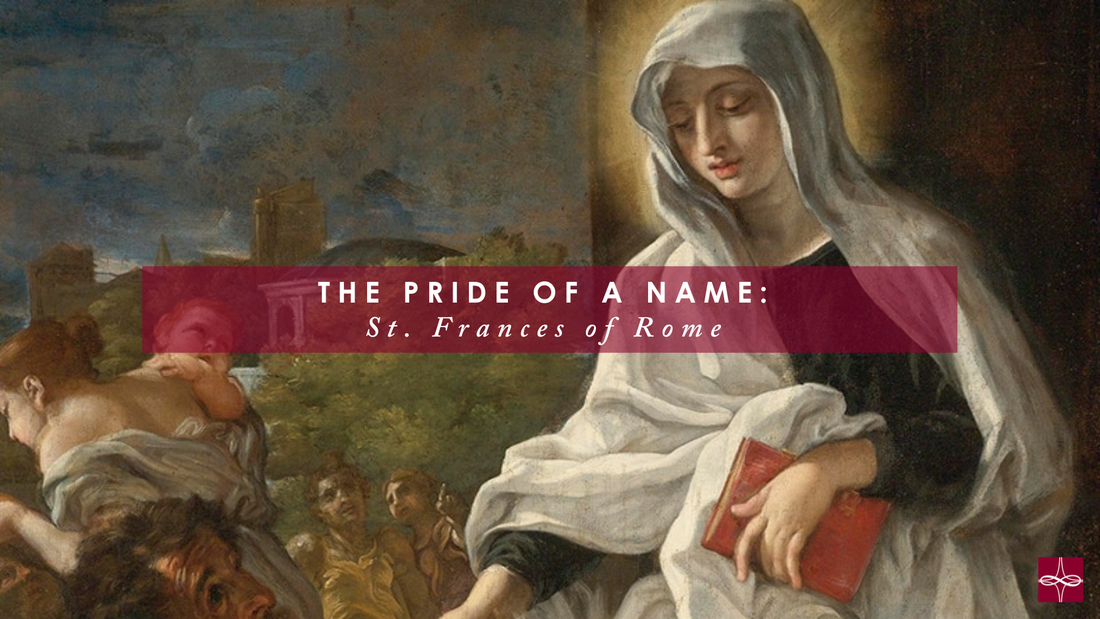
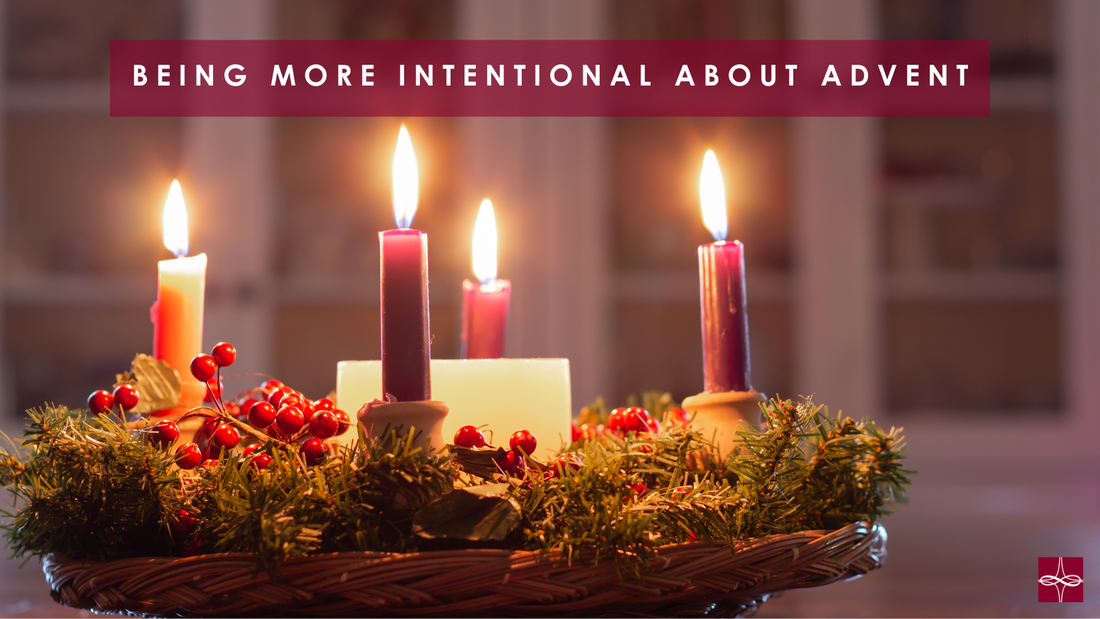
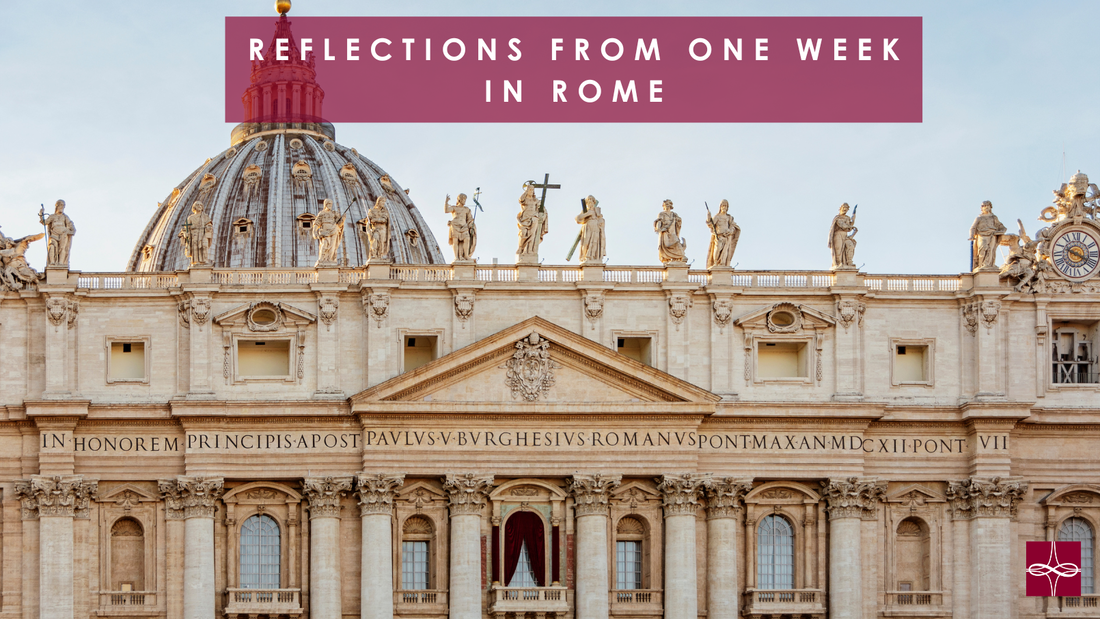

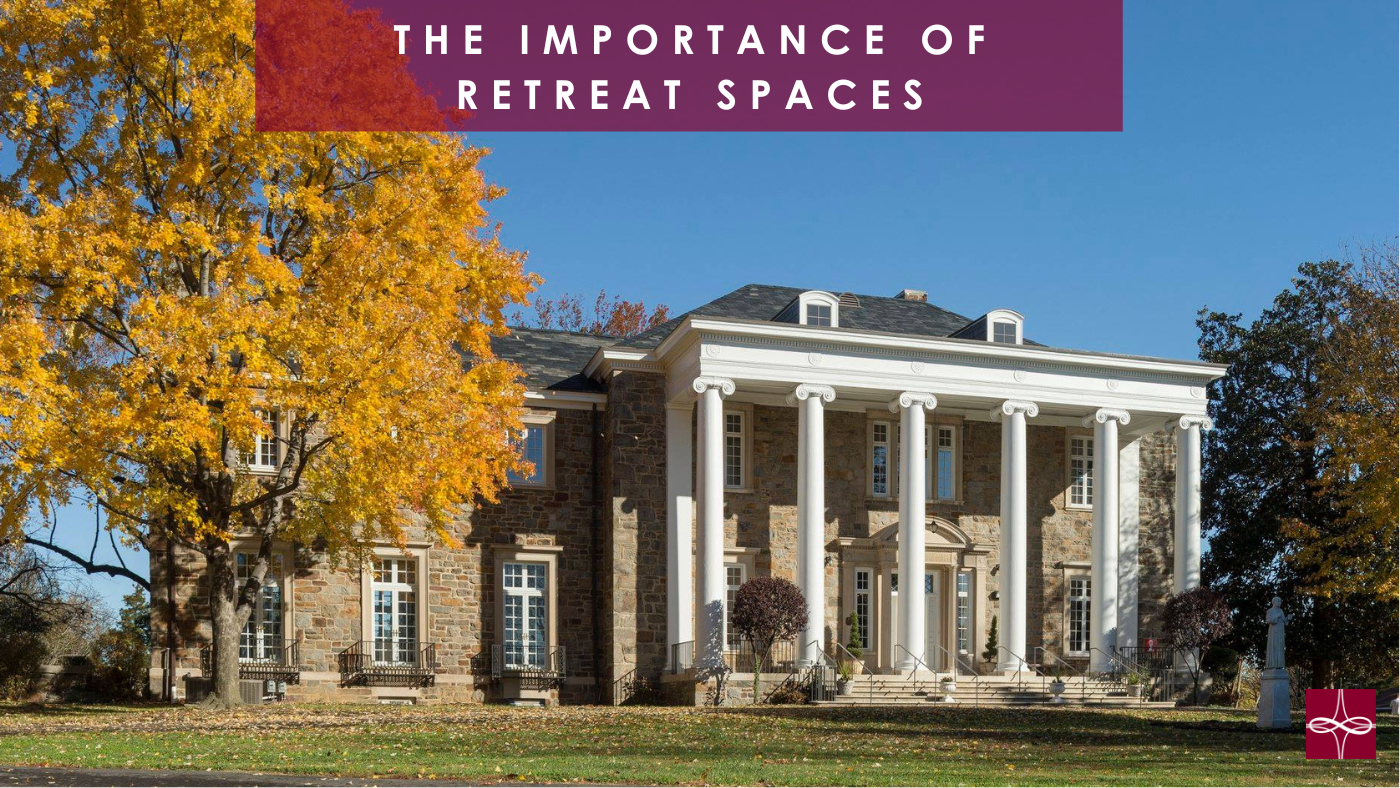

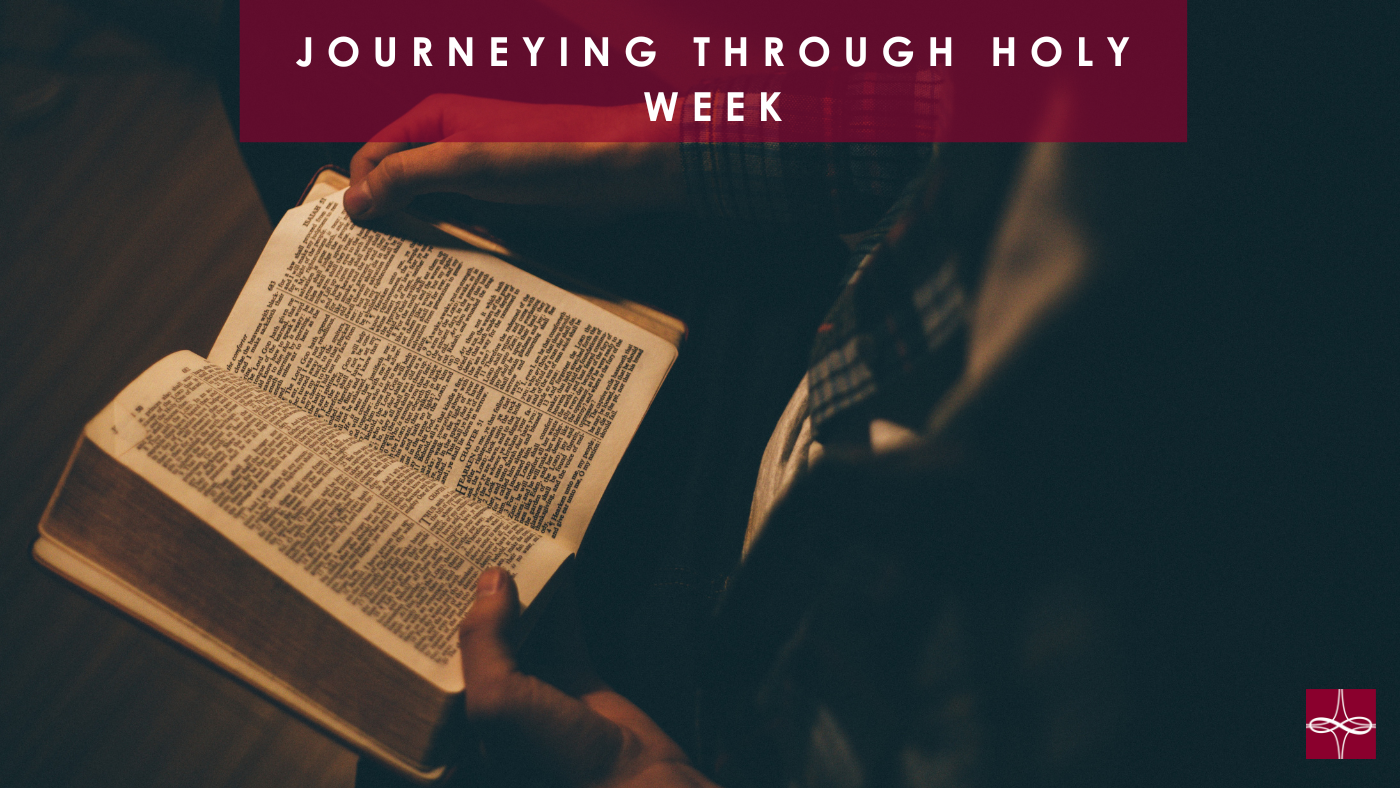
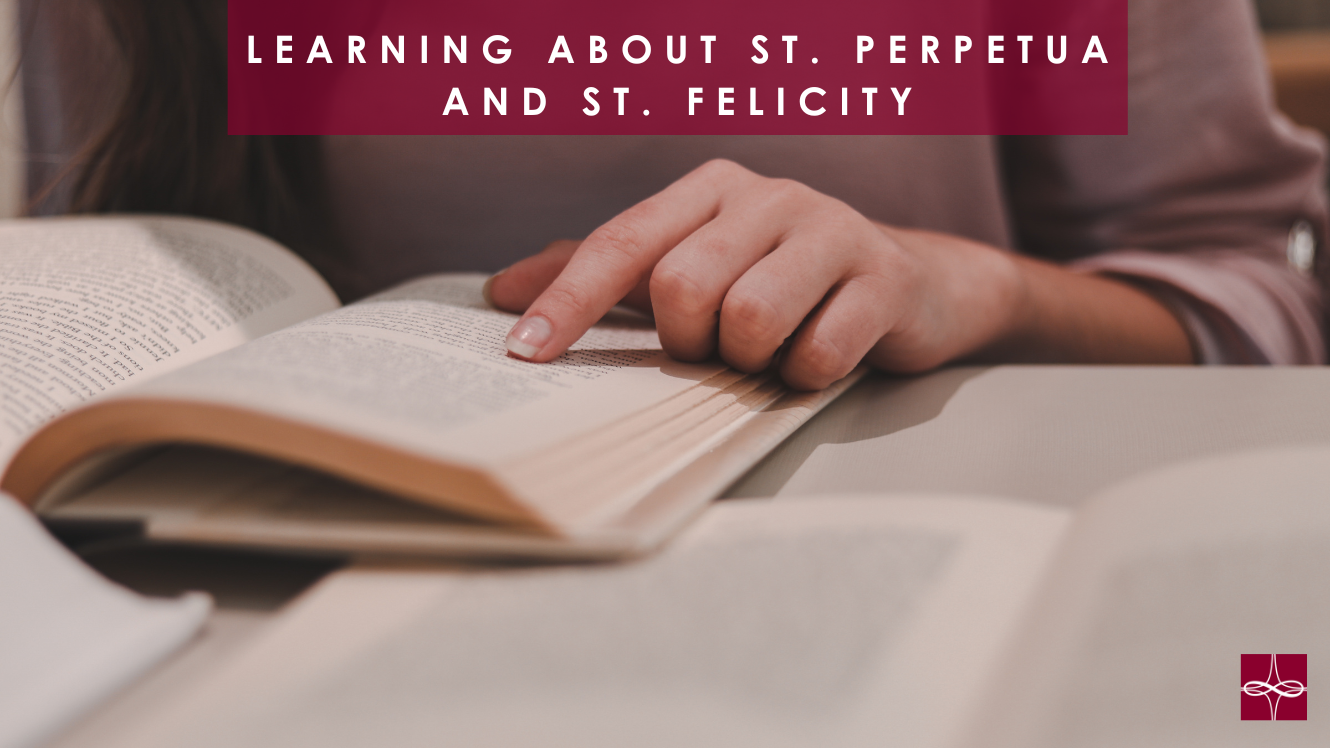
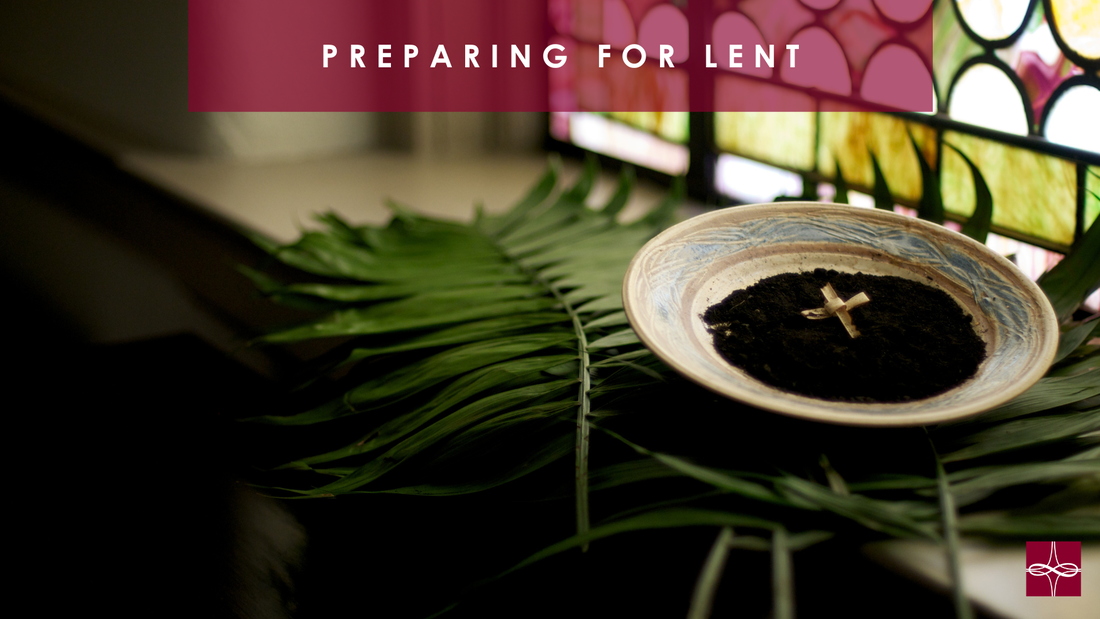


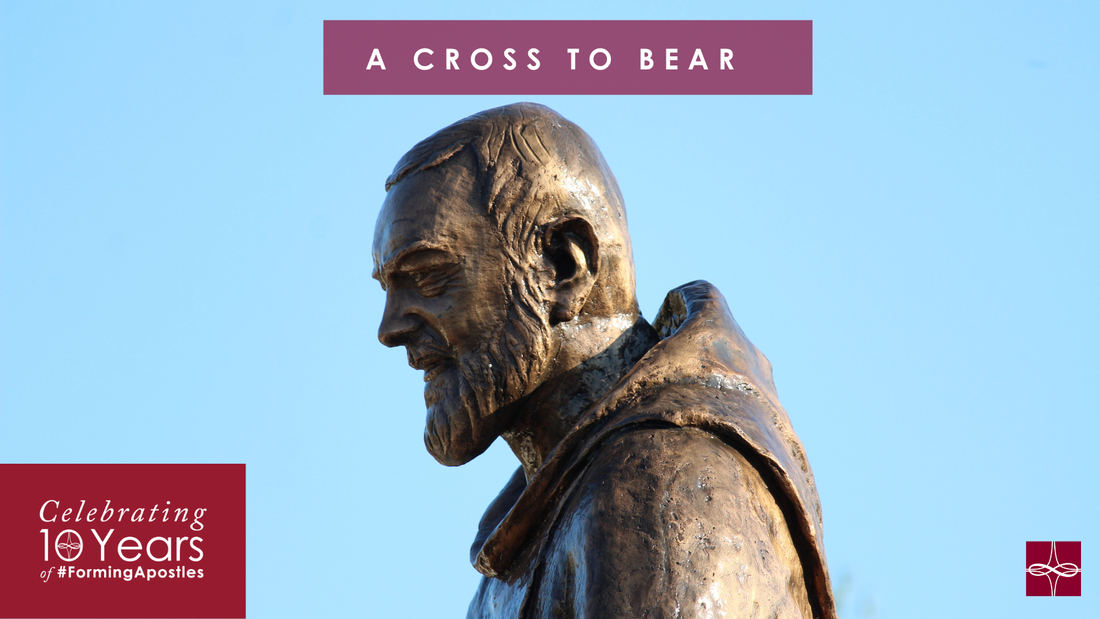

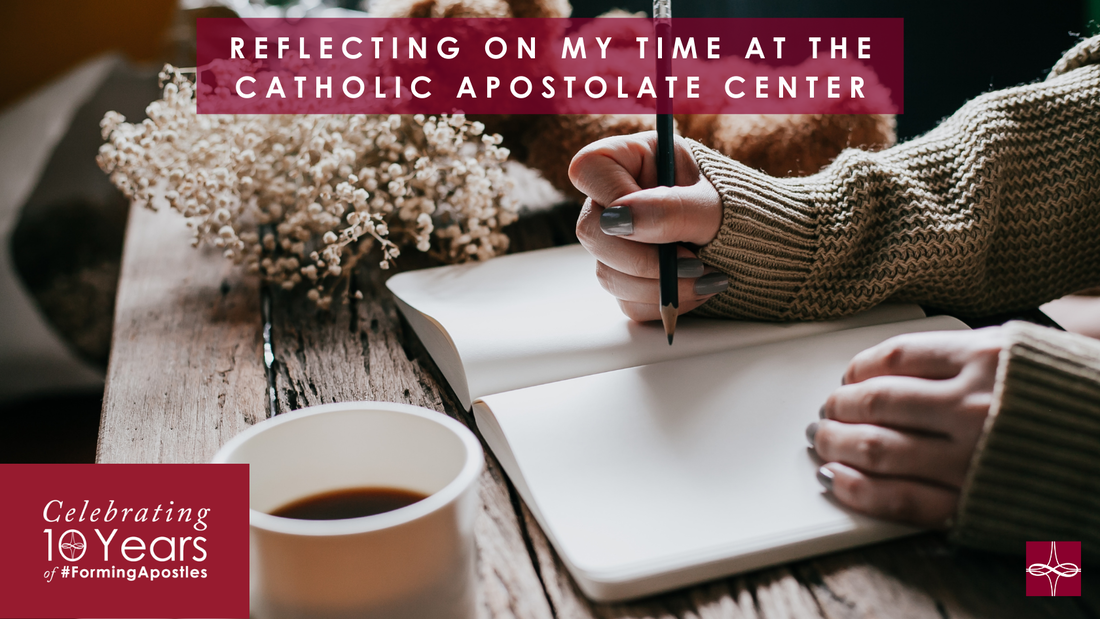

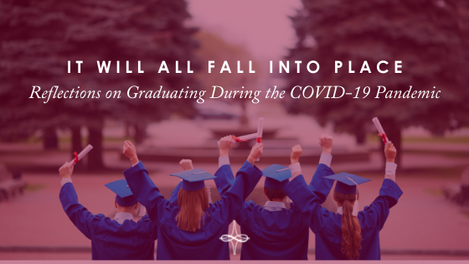
 RSS Feed
RSS Feed